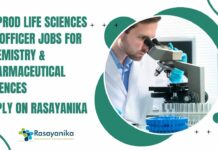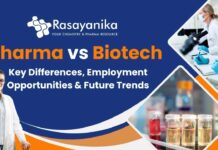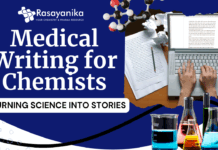Convert Plastics to Useful Chemicals With the Help of Sunlight – NTU Scientists
Plastics are littering our cities and water bodies, contributing to health issues in both animals and humans.
Nanyang Technological University (NTU) scientists have found a way to effectively utilize them by converting plastics to valuable chemicals with the help of sunlight.
NTU Singapore researchers mixed the plastics in a solvent with a catalyst that can absorb light energy and convert the plastics to formic acid. Formic acid is famous for its use in fuel cells to generate electricity.
The study published in Advanced Science was conducted by a team of researchers under NTU Assistant Professor Soo Han Sen. The catalyst was developed from the affordable and biocompatible metal, vanadium. Vanadium is commonly used in steel alloys and aluminum alloys used in vehicles and aircraft, respectively.
The vanadium, when mixed with non-biodegradable polyethylenes like plastic and kept under artificial sunlight, it broke down the carbon-carbon bonds in plastic in six days. This process converted the polyethylene to formic acid. Formic acid is a natural chemical its many applications as an antibacterial agent, preservative, in hydrogen fuel cell vehicles and energy production in power plants.
The team’s goal was
to develop cost-effective and sustainable ways to use sunlight in the manufacturing of chemical products and fuels.This is the first time scientists have developed an effective method to completely break down polyethylenes like plastic using light energy and a catalyst that has absolutely no heavy metals.
Most of the plastics are incinerated in Singapore, leading to the generation of greenhouse gases like carbon dioxide. The leftover burned plastics are deposited in the Semakau landfill, which is expected to run out of space by 2035.
NTU smart campus vision promotes the development of innovative methods to create a zero-waste environment like the discovery of catalysts to convert plastics to useful chemicals.
Harnessing energy from sunlight to convert Plastics
The vanadium-based catalyst(LV(O)) is known as a photocatalyst due to its property to drive a chemical reaction using light energy.
Unlike most chemical reactions that require heat generated from burning fuels to drive the reaction, Photocatalysts increases the reaction rate by harnessing the light energy from sunlight.
Compared to the most catalysts made from toxic or expensive heavy metals like palladium, ruthenium, or platinum, this photocatalyst is made from cheaper, environment-friendly, and abundant metal Vanadium.
Scientists have tried before to convert plastics to useful chemicals, but all the reported methods involved too many steps or toxic chemicals.
One such reported method was photoreforming, a method to convert plastics to hydrogen gas by reacting with water and sunlight. But this method required the use of cadmium catalysts that are toxic to the environment. Other methods used harsh chemical solutions that are dangerous to handle.
The exceptionally strong inert chemical bonds make the plastics non-biodegradable. The inert carbon-carbon bonds were impossible to breakdown without the application of high temperatures.
The new vanadium catalysts are designed specifically for breaking these inert bonds and does so by latching onto a nearby chemical group known as an alcohol group and using energy absorbed from sunlight to unravel the molecule like a zipper.
The plastics were heated to 85-degree Celcius to dissolve in the solvent first, followed by the addition of catalyst in powder form. The mixture was then kept under artificial sunlight for six days. The scientists showed that their low-cost catalysts could break down the chemical bonds in over 30 different compounds in an environment-friendly way.
The research team is now pursuing improvements to the process that may allow the breakdown of plastics to produce other useful chemical fuels, such as hydrogen gas.

















































